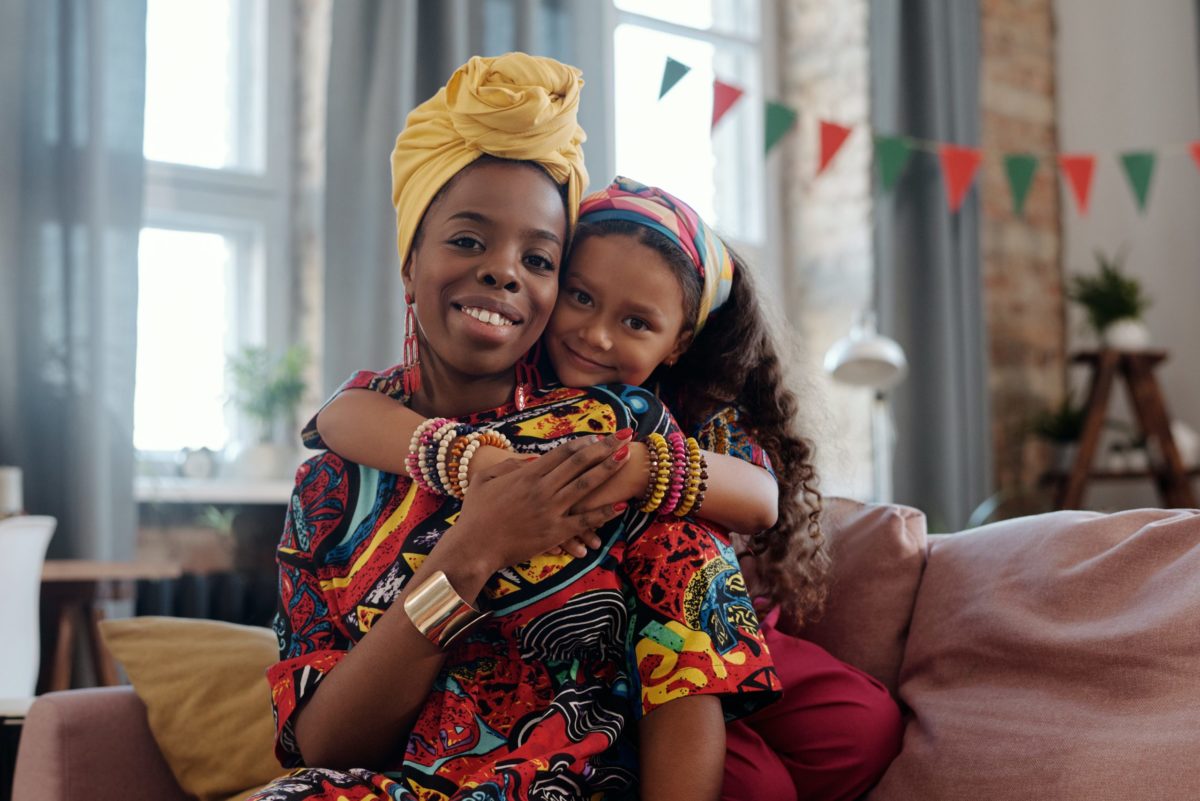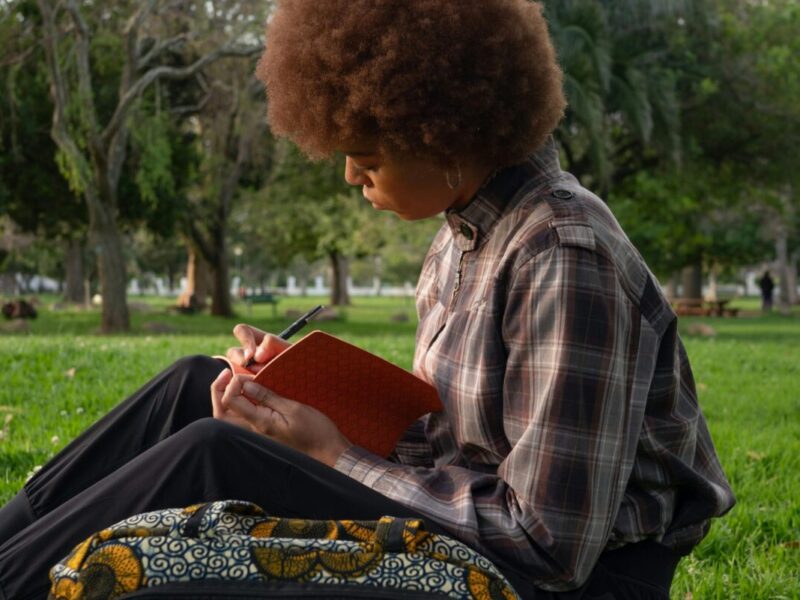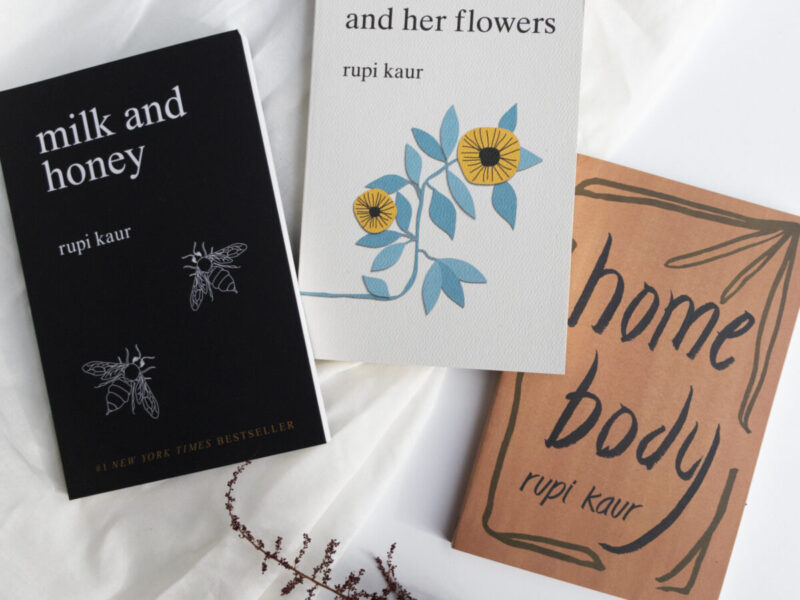6 Spectacular Poetry Collections to Educate and Inspire This Black History Month
It’s Black History Month, and poetry marks the perfect way to both reflect and celebrate. The complexity and emotion of poetry have often made it the perfect medium to share both the rich joy of Black culture and the pain and anger that arise from continued discrimination. Throughout history, iconic Black poets like Langston Hughes, Maya Angelou, Claude McKay, and many others have inspired readers and propelled social change through their work. More recently, Amanda Gorman spotlighted the power of poetry on a national and global stage when she served as an inaugural poet.
Black poets have also been instrumental in establishing core forms and movements in the genre, like blues poetry, jazz poetry, Terrance Hayes’s golden shovel form, and Jericho Brown’s duplex form. While Black History Month often pays a well-deserved tribute to trailblazers of the past, it’s important to note that Black history is still in the making——and being defined every day by a bold new generation of writers and artists. These six poetry collections released in the past year are a testament to that.
1. Concentrate by Courtney Faye Taylor
Courtney Faye Taylor’s poignant debut collection won the Cave Canem Poetry Prize and is a finalist for the 2023 NAACP Image Awards—and it deserves the wide recognition it’s getting. The innovative, multimodal work casts much-needed light on a painful historical event that has long been overshadowed: the 1992 murder of 15-year-old Latasha Harlins and its role in sparking the Los Angeles uprising. To write the collection, Taylor stood outside the now abandoned shop where owner Soon Ja Du killed Latasha, spent time wandering a Los Angeles cemetery looking for Latasha’s grave, visited Latasha’s former school, and even asked city residents about the murder. This investigative bent gives the collection a deep sense of place and humanity—as if Faye is traveling both back in time toward Latasha and toward her own girlhood.
2. Bluest Nude by Ama Codjoe
Black art is the focus of Ama Codjoe’s Bluest Nude, which acts as an ode to the works of Lorna Simpson, Gwendolyn Brooks, Lynette Yiadom-Boakye, and more. Codjoe conjures their paintings, photographs, and literature so well that it’s almost as if the reader is seeing and reading them, too—and feeling their profound impact. Through poetic descriptions of Black artwork and her connection with it, Codjoe celebrates art and showcases its role in resisting violence and oppression, as well as its power to arrive at new beginnings. Above all, Codjoe remarks that art is a way of being seen—and that who society sees matters.
3. We Find Our Way by Reyna Biddy
In We Find Our Way, beloved poet Reyna Biddy claims her own place in Black history. The collection stands out as a letter to her ancestors and a reckoning with the past, as she charges ahead to a more hopeful and healed future. Biddy illuminates the radical, urgent role of self-love—namely, in a world that has not always loved her or her ancestors, Biddy reclaims power and fights for change by unabashedly loving herself. The collection takes readers on a sweeping journey through time, as Biddy not only revisits her upbringing and imagines what came before her, but also writes about motherhood and welcoming new life. The collection presents Blackness as a fierce, familial, and ever-continuing lineage.
4. Chrome Valley by Mahogany L. Browne
Mahogany L. Browne’s Chrome Valley, which comes out in February and has topped most-anticipated lists for months, is a beautiful, multi-faceted depiction of the many Black women Browne has loved: her mother, her friends, and a wide array of activists and abolitionists. Through these figures, Browne sees the possibilities of Black womanhood and also remarks on her own experiences getting there—both joyful and painful. She muses on what her ancestors handed down to her and how she’s used those teachings to build an enduring resilience.
5. The Door of No Return by Kwame Alexander
Kwame Alexander’s latest book, The Door of No Return, has garnered praise from everyone from Lupita Nyong’o to Rick Riordan. A notable YA poet who writes in verse, Alexander is skilled at writing poetry that can advance a plot, that can help readers get to know characters, and that truly makes for a page-turner. Like many other books on this list, The Door of No Return considers ancestry and long-buried historical truths. Darker themes come to life through the 11-year-old main character’s arduous journey and fight for his life after he goes to a nearby river at night. While serving as an emotional testament to Black history, Alexander’s fast-paced, turbulent narrative is also an adventure.
6. Alive at the End of the World by Saeed Jones
For anyone living through the 21st century, it might seem as if collective grief is mounting and the end of the world is closer than ever. Saeed Jones, winner of the Pushcart Prize and PEN Literary Award, presents an alternative that is both devastating and strangely hopeful: that the end of the world is already here. In this musical collection that brims with heartbreak and humor, Jones argues that we’re living through the apocalypse—an absurdity that should push us toward collectivism and being more gentle with ourselves. Named a “Best Book of 2022” by NPR, Alive at the End of the World also stands out for its blurred genre, as Jones melds poetry, fiction, and memoir, as well as delves into persona poetry. Many different voices speak throughout Alive at the End of the World, and each one is worth listening to.
Happy Black History Month!




